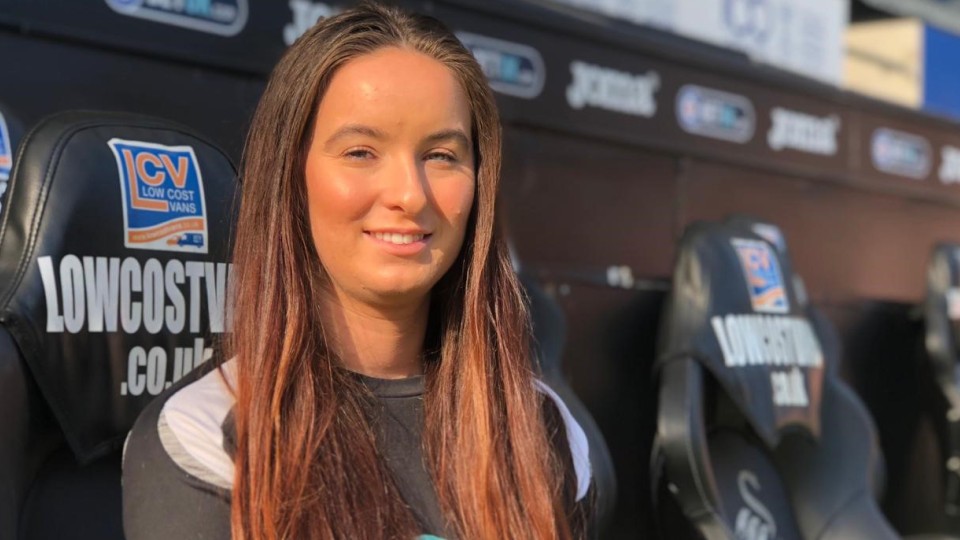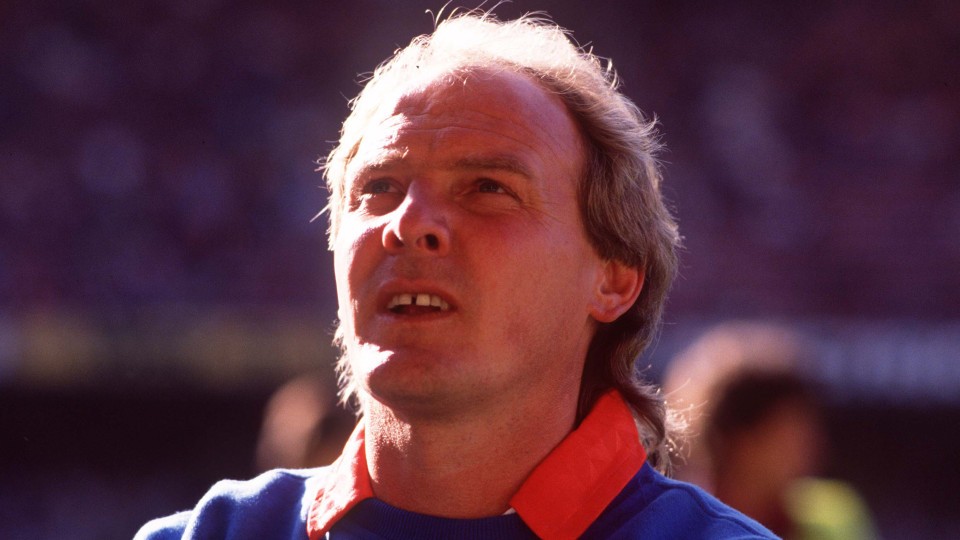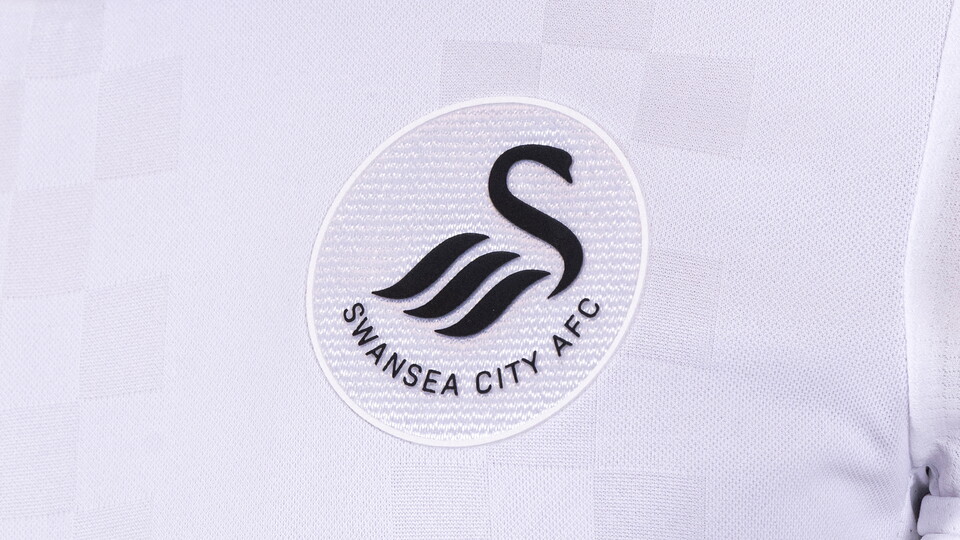International Women's Day: Bethany Chaddock
In the lead up to International Women’s Day on March 8, we are profiling five women involved in five different aspects of life at Swansea City. Here, we speak to academy head physiotherapist Bethany Chaddock.
It may seem ironic given her occupation, but Bethany Chaddock’s desire to become a sports physiotherapist actually rose out of her own injury misfortune.
Chaddock, who hails from Altrincham, was a British Championship level gymnast as a teenager, a medal prospect in team and individual competition.
She admits herself that, unfortunately, there were more injuries than silverware to show despite her undoubted talent.
But the experience of finding herself as a frustrated spectator on the sidelines, ignited an interest in the rehabilitation process.
“I originally wanted to be a doctor,” she said.
“I’m not too sure where that actually came from to be honest, but when I got injured from competing myself, I was one of those nightmare patients that used to ask every single question. It was actually my physio, I was 16 at the time, who put the idea in my mind.
“I just never changed it from there, really.
“I had competed at a high level. I went to British Championships and stuff like that, competing for team medals and individual medals, but I’ve seen more injuries through that than anything else.”
Chaddock enrolled on an undergraduate degree at York St. John University, progressing onto a part-time Masters course at Birmingham University.
Chaddock’s experiences with injuries from her time in gymnastics only fuelled her interest in becoming a physiotherapist, and her family backed her all the way.
“My mum and dad were really supportive, my dad kind of more so when I said I wanted to go into football, I think he was over the moon about it. They always used to tell me to go for what I wanted in life”, she says.
“My friends, I think, just assumed I wanted to go for gymnastics, so they didn’t realise that I had my heart set on football.
“Seeing these women pitch side on the TV and stuff, I thought ‘that’s what I want to do’.
“I want to be able to do that for players and help them get back out there.”
However, the support of her family was not always mirrored elsewhere as she worked to achieve her career goal, and she recalls how on occasions efforts were made to dissuade her from pursuing her dream.
But Chaddock is a strong character, and she was not for turning from her chosen course.
“My family and friends were always very supportive, but at University not so much. They didn’t really understand why I was so driven to work in men’s football, in fact, I even got told at some points that I couldn’t do it,” she said.
“So that definitely gave me a big sense of pride to make sure I did actually get there.
“One of the lecturers said that my MSK (musculoskeletal), your main bit in physio if you want to work in sport, wasn’t strong enough.
“That was in my second year, so I made sure I worked extra hours, I worked with rugby teams and things like that, and watched how they rehabbed and made sure I knew full well that my MSK was strong enough to go into that background.”
But Chaddock’s relentless determination paid off. She spent four years working at Tranmere Rovers before making the switch to the Swans in 2018, after being made aware of a vacancy in the club’s academy system.
“I did a few bits with [Tranmere’s] first team towards the end after the first-team physio left. I was on the bench for the play-off final at Wembley, and that really made me push for something a little higher where the stakes were a bit bigger,” she said.
“When the job for Swansea came up, another physio from another club got in touch with me and said “I worked there and I think it would be a fantastic opportunity for you.
“So I had a little look into it and the job was with the age groups that were perfect for me at the time and I applied, and was lucky enough to get the job.”
Chaddock admits going from a first-team environment to an age-grade set-up was initially a culture shock, but it did not take her long to adapt and become an integral part of the team behind an academy that has produced a number of players ready to make the step up to Championship level.
And, having helped those players deal with knocks, niggles and more serious injury setbacks along the way, she gets a great deal of satisfaction seeing those under her care progress.
“It was difficult when you work with players who, most of the time, aren’t quite ready for the first team,” she said.
“But with the Swans you have the under-23 system so you see a lot more of the players that you really put the effort in with the academy come through into the first team”, she says.
“I absolutely love my work. It’s amazing. A lot of the time you get to see the injury that happens, so you really do see it from start to finish.
“You see it from the second they are taken off the pitch to the moment they cross that white line back onto the pitch.
“You can spend months, sometimes even years, in the physio room trying to achieve the goal of putting their foot back on the grass in a competitive game.
“It means a hell of a lot for the players, and it’s nice to know that when they are going forward in their careers they will always remember that.”
And Chaddock hopes that the sight of herself and Swans first-team head physio Kate Rees holding senior positions will inspire more young women to pursue a career in the game.
“I hope my story gives young girls out there who want to work in a men’s sport - but for some reason think that it’s difficult to do so - that you can do it,” she added.
“There’s no barrier. You just have to earn your right to be there in the same way a man earns their right to be there also.”



